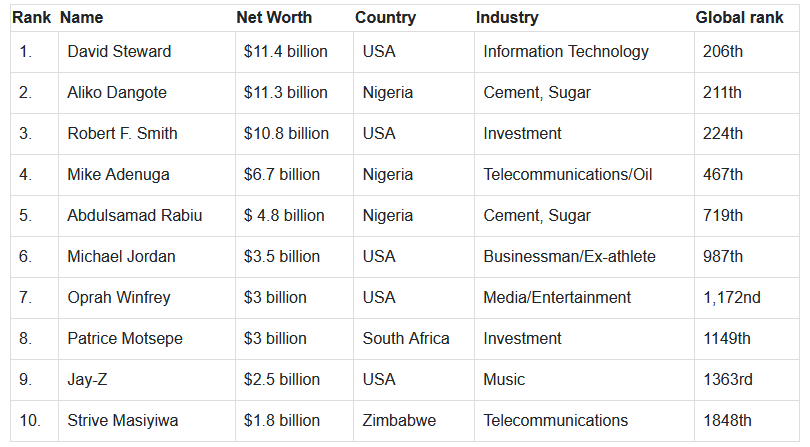Africa and the Black population have been plagued by Systemic injustice, colonial exploitation, and economic marginalisation for centuries. With the emergence of Black billionaires, the narrative is changing as it shows that wealth can be amassed within the African community.
The concentration of wealth in Black and African communities serves as a powerful tool for boosting regional economies. Despite the abundant natural resources, many African economies remain underdeveloped due to insufficient infrastructure, poor governance, and reliance on external financing.
These billionaires are breaking the cycle of underdevelopment by injecting capital into African and Black-owned businesses, infrastructure, and social projects. Their investments are not just about making profits but also about creating opportunities and driving progress in their communities.
For example, Dangote is a diversified investor in Nigeria with interests in a wide range of industries, from oil refining to cement manufacturing. His ventures have created thousands of jobs and are driving the country’s industrial development. Similarly, billionaires such as Strive Masiyiwa in Zimbabwe are driving technological progress in Africa by building telecommunications networks that connect millions of people.
However, as is common with billionaires, those representing the Black community experience fluctuations that can significantly impact an ecosystem reliant on their wealth. This interconnected network of Black billionaires mirrors the global financial system, showing that their fortunes rise and fall in line with changes in the economy, market dynamics, and company expansion, just like any other major player in the global economy.
According to Forbes, David Steward, the co-founder of World Wide Technology (WWT), recently overtook Nigerian Aliko Dangote to become the richest Black man.
On that note, here are the ten richest black people in the world, according to Forbes real-time index as of October 10.


